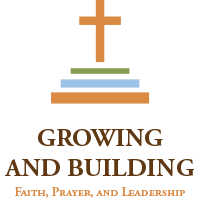If it wasn’t for people . . . there would be no need for purpose.
An important responsibility of board governance is the establishment of a clear understanding of what the organization is in business for; what the purpose of the organization is, what it envisions as the future for the long haul, and what the mission is. These key concepts define the organization; it’s their reason for being. How a board arrives at these organizational concepts may vary, but my preference is that it starts with those responsible for execution; the commander or CEO.
The purpose of your organization may be to sell a product or series of products, or it may be to provide a service. But you must always ask a deeper question, what is the real purpose? You may be selling chocolate covered strawberries on Valentine’s Day, but your real purpose is creating romance, commitment, and love among people. When I was commander of the 435th Tactical Airlift Wing at Rhine-Main Air Base, Germany our job was to provide tactical airlift for soldiers, sailors, airmen, and marines and to process people and cargo into the European theater of operations. That is what we did, but our real purpose was to enable our nation to project power into that theater of operations during a time of crisis. We could never lose sight of that purpose because it involved so much more than moving people and things.
Chick-Fil-A is a purpose-driven business. Their purpose is: “To glorify God by being a faithful steward of all that is entrusted to us and to have a positive influence on all who come into contact with Chick-fil-A.” [i] The real purpose of Chick-Fil-A is to “To glorify God.” Your board must be absolutely sure of what the purpose of your organization is, and it should be results-oriented, not activity oriented.
So, you have a purpose, next is deciding what you see as the future of the organization as it achieves that purpose? This is what I call the vision for your organization—a vision statement. I consider a vision statement as a declaration of what you see the organization achieving over the long haul. I see that statement as something realistic, but so big that the organization cannot quite get its “arms around” it. Feasible, but achievable only with the greatest of creativity and effort. The vision statement for Amazon is: “. . . to be earth’s most customer-centric company; to build a place where people can come to find and discover anything they might want to buy online.” [ii] The focus of their vision, “the earth’s most customer-centric company.”
And last, with a clear purpose and a vision, I am a proponent of having a simple mission statement that reflects the organization’s vision and purpose—something that every person in the organization can remember and with which they can identify. The mission statement doesn’t have to identically reflect vision and purpose, but it must fully support those tenants. When I was commander of Air Force Special Operations Command, we developed a mission statement that every commander and every airman could comprehend and stand behind. It was: “America’s specialized air power . . . a step ahead in a changing world, delivering special operations combat power anytime, anyplace.” This statement proclaimed who we were, “America’s specialized air power,” what we did, “stay a step ahead,” and results we expected, “delivering special operations combat power.” You might wonder why we said staying “a step ahead,” was what we did. Simple, in all aspects of special operations, if what we did was not “a step ahead” of the enemy, we would have never achieved the desired results of successfully delivering special operations air, land, and sea combat power onto the target. [iii]
Boards look a lot like people; when they act, they act as a single entity. So, should people look like boards? Should you have a purpose driven life—maybe to “glorify God?” The references to the purpose I see in the Bible all relate to God’s purposes—”And we know that in all things God works for the good of those who love him, who have been called according to His purpose.” (Rm. 8:28) “Many are the plans in a man’s heart, but it is the Lord’s purpose that prevails.” (Prov. 19:21) I take from this that our life purpose needs to be in accordance with God’s purpose. Do you think that your board and organization’s business might have something to do with God’s purpose? Do you know what you are in business for with your life? As an extension of your purpose, do you have vision and mission statements for your life? Questions worth considering.
[1] https://www.bing.com/search?q=s.+truett+cathy&form
[1] https://www.chick-fil-a.com/About/Who-We-Are
[1] https://www.thebalance.com/amazon-mission-statement-4068548
[1] AFSOC Strategic Plan, 1993.





